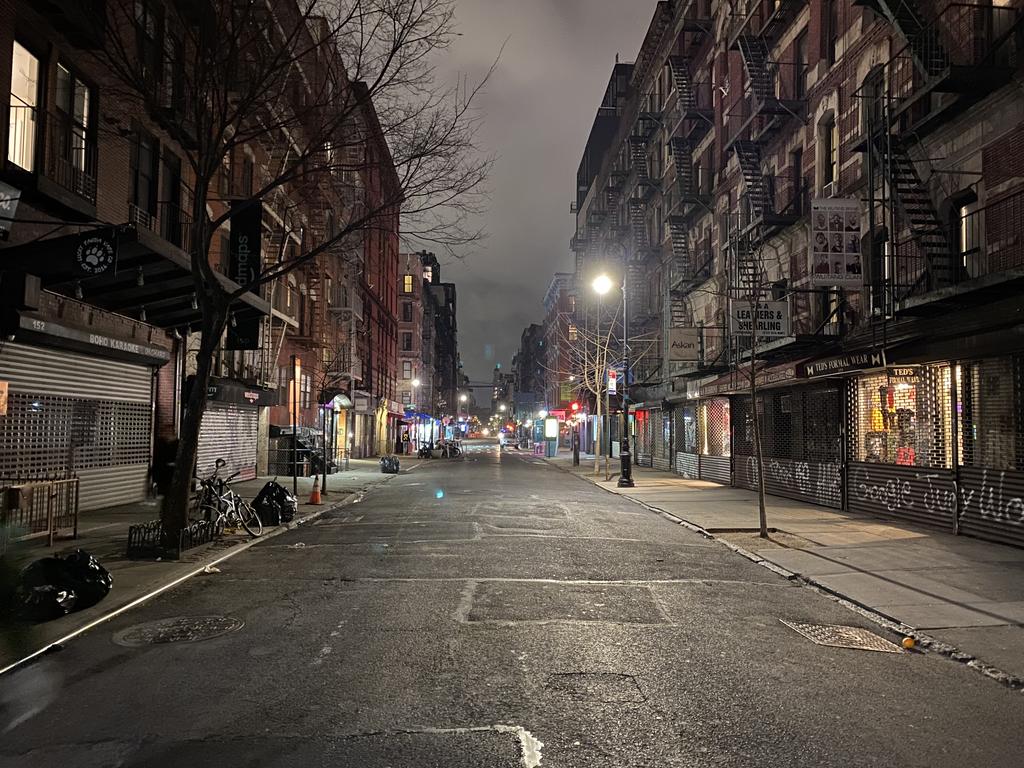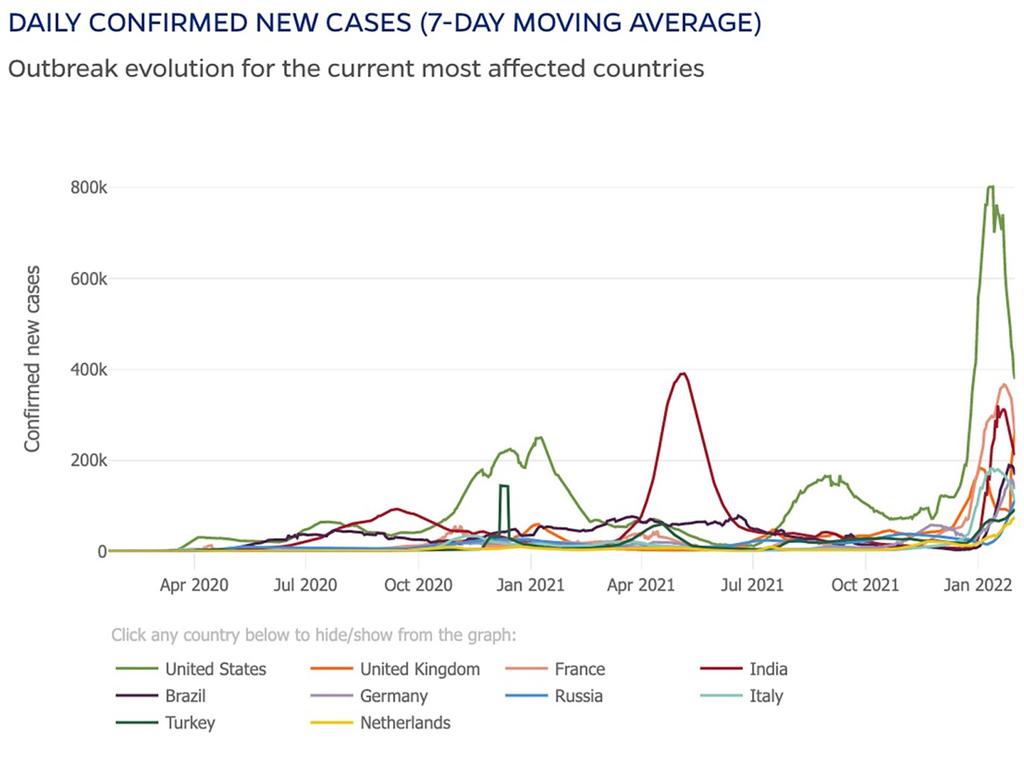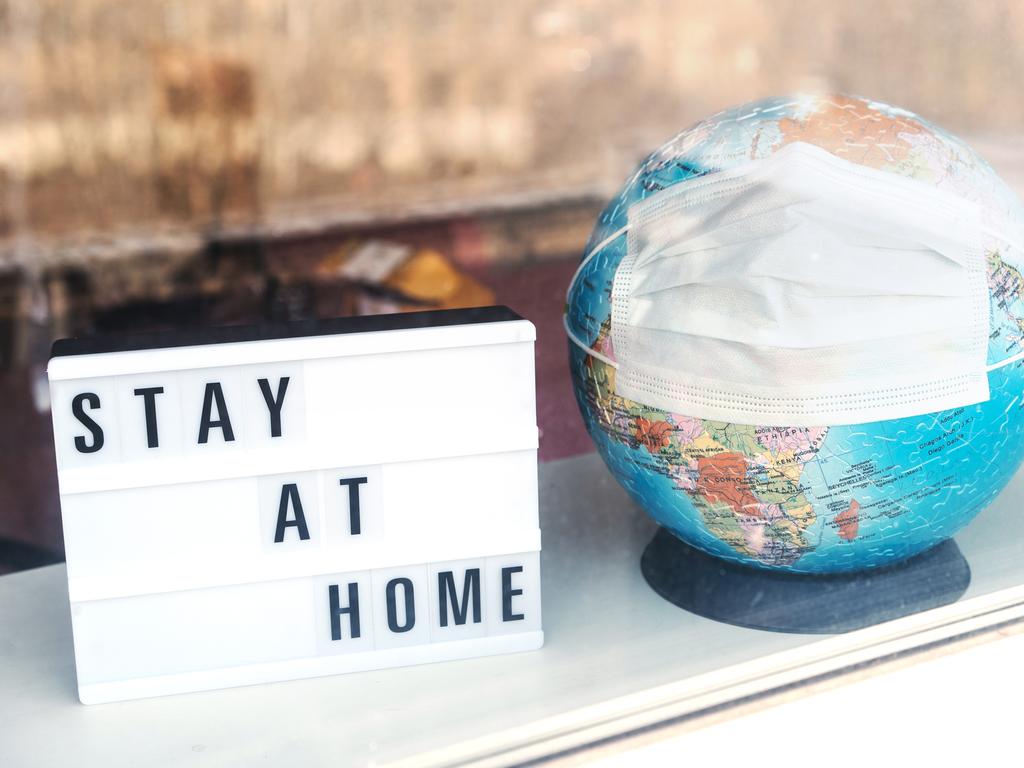Johns Hopkins Institute study reveals Covid-19 lockdowns had ‘little to no effect’ on mortality rate
The effectiveness of one of the most hated measures to stem the coronavirus pandemic has been laid bare by a series of new studies.

Lockdowns had “little to no effect” on saving lives during the pandemic — and “should be rejected out of hand as a pandemic policy”, according to economists in a new meta-analysis of dozens of studies.
A group led by the head of Johns Hopkins Institute for Applied Economics analysed studies from the first surge of the pandemic to investigate widely pushed claims that stringent restrictions would limit deaths, theNew York Postreports.
Instead, the meta-analysis concluded that lockdowns across the US and Europe had only “reduced Covid-19 mortality by 0.2 per cent on average.”
Worse, some of the studies even suggested that limiting gatherings in safe outdoor spots may have been “counter-productive and increased” the death rate, the authors noted.
“While this meta-analysis concludes that lockdowns have had little to no public health effects, they have imposed enormous economic and social costs where they have been adopted,” the professors wrote in the journal Studies in Applied Economics.
In fact, the early lockdowns “have had devastating effects,” the authors insisted.
“They have contributed to reducing economic activity, raising unemployment, reducing schooling, causing political unrest, contributing to domestic violence, and undermining liberal democracy,” the damning report insisted.
“Such a standard benefit-cost calculation leads to a strong conclusion: lockdowns should be rejected out of hand as a pandemic policy instrument,” the authors said of the “ill-founded” measures.
The research was led by Steve Hanke, founder and co-director of the Johns Hopkins Institute for Applied Economics, along with a professor from Sweden and a special Adviser at the Center for Political Studies in Copenhagen, Denmark.


The team said it evaluated “any government mandate that directly restrict peoples’ possibilities, such as policies that limit internal movement, close schools and businesses, and ban international travel.”
For almost all of those divisive policies, they reported “no broadbased evidence of noticeable effects on Covid-19 mortality.”
In fact, some of the studies even suggested shelter-in-place orders even increased the threat of the contagion, forcing people to stay home with vulnerable family members.
The “unintended consequences” also included early measures that stopped people spending time in “safe (outdoor) places” and instead “pushing people to meet at less safe (indoor) places.”
The only measure that did reflect a positive outcome was closing non-essential businesses, which the team said showed a 10.6 per cent reduction in mortality.

That was “likely to be related to the closure of bars,” they wrote.
The authors suggested that masks “may reduce” mortality, but noted the limited number of relevant studies to be able to draw firm conclusions.
More Coverage
The trio suggested that countries such as Sweden that stayed open fared well because citizens willingly took precautions without being ordered to do so.
“When a pandemic rages, people believe in social distancing regardless of what the government mandates,” the report noted.
This article originally appeared in the New York Post and was reproduced with permission





